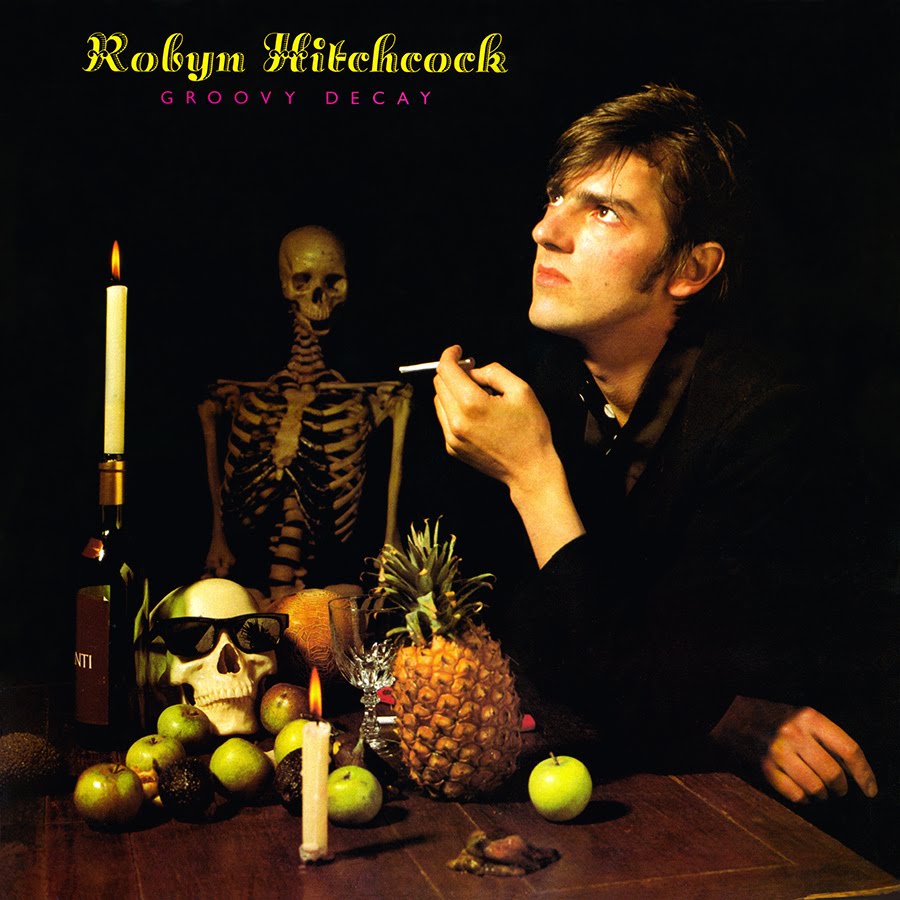
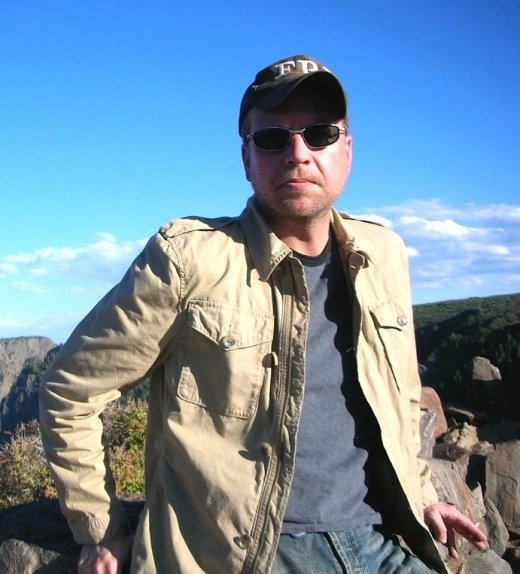 BY JONATHAN VALANIA Joe Boyd is a most intriguing fellow to rock snobs or anyone with a working knowledge of the cultural history of the latter half of the 20th century. An American ex-pat (south Jersey represent!) living in Britain most of his life, Boyd not only had a front row seat for some of the most important albums, bands and events of the psychedelic 60s — events that would, in many ways, define rock history moving forward — he was often their chief enabler. Boyd produced “Arnold Layne,” Pink Floyd’s first single, along with albums by Nick Drake, Fairport Convention and The Incredible String Band to name but a few. He was manning the sound board when Dylan went electric the Newport Folk Festival and essentially ushered in the modern rock era. All of this was detailed in his endlessly fascinating 2006 memoir White Bicycles, which Boyd will be reading from tonight at World Cafe Live — with a focus on the year 1967, psychedelia’s annus mirabilis. Backing him up will be Robyn Hitchcock, whose career as itinerant idiosyncratic folk-pop troubadour stretching back 30something years to his glory days with the Soft Boys could be accurately characterized as the love child of Boyd’s work. In between Boyd reading passages from White Bicycles, Hitchcock will be playing relevant tracks from Floyd, Nick Drake, Fairport Convention, The Incredible String Band, Dylan, Hendrix and much more. With this in mind, we rang up Hitchcock to discuss all the above and then some and the conversation touched on
BY JONATHAN VALANIA Joe Boyd is a most intriguing fellow to rock snobs or anyone with a working knowledge of the cultural history of the latter half of the 20th century. An American ex-pat (south Jersey represent!) living in Britain most of his life, Boyd not only had a front row seat for some of the most important albums, bands and events of the psychedelic 60s — events that would, in many ways, define rock history moving forward — he was often their chief enabler. Boyd produced “Arnold Layne,” Pink Floyd’s first single, along with albums by Nick Drake, Fairport Convention and The Incredible String Band to name but a few. He was manning the sound board when Dylan went electric the Newport Folk Festival and essentially ushered in the modern rock era. All of this was detailed in his endlessly fascinating 2006 memoir White Bicycles, which Boyd will be reading from tonight at World Cafe Live — with a focus on the year 1967, psychedelia’s annus mirabilis. Backing him up will be Robyn Hitchcock, whose career as itinerant idiosyncratic folk-pop troubadour stretching back 30something years to his glory days with the Soft Boys could be accurately characterized as the love child of Boyd’s work. In between Boyd reading passages from White Bicycles, Hitchcock will be playing relevant tracks from Floyd, Nick Drake, Fairport Convention, The Incredible String Band, Dylan, Hendrix and much more. With this in mind, we rang up Hitchcock to discuss all the above and then some and the conversation touched on 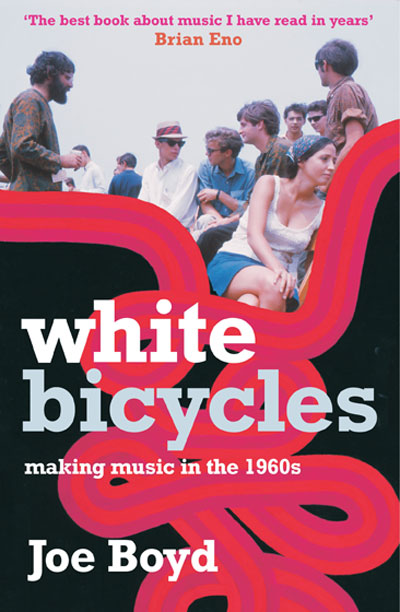 everything from acid, Eno, and Hendrix to Syd Barrett, the Velvet Underground and Dylan’s Basement Tapes.
everything from acid, Eno, and Hendrix to Syd Barrett, the Velvet Underground and Dylan’s Basement Tapes.
PHAWKER: Cool, we’re rolling. Alright, first question: Where were you in 1967?
ROBYN HITCHCOCK: Where was I physically?
PHAWKER: Physically or mentally or either way you want to take it.
ROBYN HITCHCOCK: I was in the South of England. Mostly in a small city which was once the capital of England called Winchester. Winchester is famous for its long Medieval cathedral, which has been there for about 800 to 900 years. And in the days before ocean liners and aeroplanes, and anything big really, there it was in the valley. You could see the cathedral for miles. And behind the cathedral there is a hill and at the top of that hill was a Neolithic site which means it had been used by people maybe 3,000 or 4000 years back, towards the Stonehenge Era. And everybody thought that they would excavate up there to see if they could find flint heads and such. So I was really in a very ancient kind of place and I was in a school that had damp, stone cloisters and all the kind of things that Americans would like to think that Brits grew up in. It was a very Old World kind of academic school with lots of wood and stone and grit and flint and not a lot of heating. And I would hear these records coming through, some of which were produced by Joe. So that was my setting, yeah.
PHAWKER: Okay. Let me ask you this. How did you hear that music? You mention these records. Was this stuff on the radio or was it pirate radio?
ROBYN HITCHCOCK: We hardly had radios then. It was a kind of academy for bright boys whose parents had some money, and we were kind of incarcerated in that. But, you know, people bought records, so we had lots of access to recorded music. I mean in those days, apart from what was on pirate radio, there wasn’t much really. I mean of course that was when Radio 1 started. But no, I mean it was just records, I suppose, that people thought to buy. Funnily enough, Brian Eno was around. He was at the local art school and he befriended some of the sort of older hipper boys at our school and he would turn up and produce bits of concrete poetry and conceptual writing and stuff for the school magazine. So Brian Eno was around in our world about five years before he reached everyone else via Roxy Music.
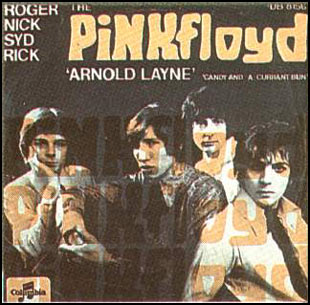 PHAWKER: Wow.
PHAWKER: Wow.
ROBYN HITCHCOCK: So Eno had been a sort of factor in my life. Never a very close one, but he would turn up at performance art events like filling up balloons with helium and writing messages on them. Another time he gave an underground music concert quite literally in an underground chamber – a medieval courtyard – with a blue light bulb screwed into the fixture above. I mean, I don’t know how they managed to hook up lights in a Medieval basement but they did somehow. And Brian Eno, he had a Revox tape machine, which must have weighed a ton, and he was running it, playing something backwards – I think it was a Dylan song – and he had somebody playing a de-tuned electric violin. He must have been the first person to get hold of The Velvet Underground. But I remember one of the kids at school turned up with a Velvet Underground album at least a year before it was released in Britain. So that was the weird thing; we were in some ways very isolated but in other ways, you know, there was a whole current of hip that was flooding through Winchester.
PHAWKER: Wow.
ROBYN HITCHCOCK: And I would sit there, you know. I’d spend the money I’d earned clearing up my parents’ house on a portable record player and I sat there in the autumn listening to The Incredible String Band and crossing my legs and pretending to levitate, you know. It was definitely the right time.
PHAWKER: Okay, next question. If you could ask Syd Barrett one question, and this is assuming you’ve met him, what would it be?
ROBYN HITCHCOCK: You mean if I could have asked him while he was alive or now as a disembodied spirit?
PHAWKER: Either way.
ROBYN HITCHCOCK: Boy. Well I suppose I’d have to ask him what it was like working with Joe Boyd.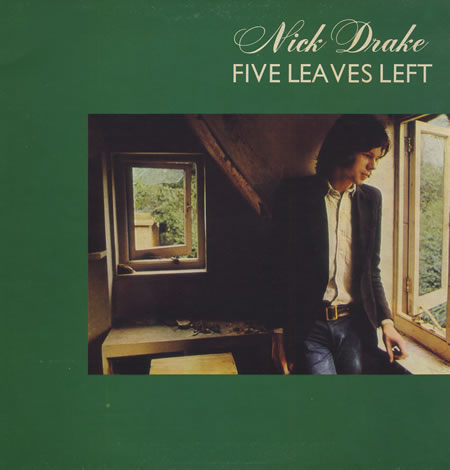
PHAWKER: Fair enough. How about this: if the flying saucers landed tomorrow and they came out and asked you “Who was this Jimmy Hendrix?” what would you say to them?
ROBYN HITCHCOCK: I’d say, “It was me!” I’d grab a guitar and start playing it left-handed. I would say, “Yes, I summoned you all here! Now, take the Tea Party away!”
PHAWKER: Alright, same question. The flying saucers come down here and they ask you ‘Who is Nick Drake?’ what would you tell them?
ROBYN HITCHCOCK: I’d tell them they should ask Joe Boyd.
PHAWKER: I can see where this is going. One last question, and this is a similarly gimmicky question. Your house is on fire. You can only save one Bob Dylan record. Which one is it and why?
ROBYN HITCHCOCK: You didn’t ask me what format.
PHAWKER: In what format?
ROBYN HITCHCOCK: I would take The Basement Tapes.
PHAWKER: The official release or the bootlegs…?
ROBYN HITCHCOCK: No, not the bootlegs. Not the complete rambling Basement Tapes, but I’d take the fifteen, or whatever it was, songs that Dylan wrote that were officially released as The Basement Tapes. Things like “Yeah! Heavy and a Bottle of Bread” and “Tears of Rage” and “Open the Door, Homer” and those, I think. I think that was when he peaked. He was singing in quite a relaxed way, quite high sometimes like the band he was singing with and sometimes quite low like Johnny Cash who also seemed to be around. You could feel him really blending in with the people he was with and his singing was quite relaxed and the songs were all quite short. And they still had a sort of quite otherworldly sense. Not in the sort of psychedelic way that everybody else was otherworldly in the outside world, but the sort of thing that Greil Marcus writes books about. He kind of condensed his songs down into sort of little short, mythical words. They were almost like children’s songs in a way, it was the only time Dylan had a lot of choruses and the choruses had a lot of harmonies on. You 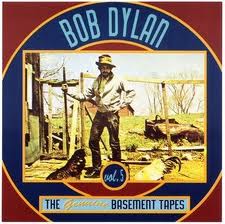 know if I was going to play Dylan to four-year-olds I would probably play The Basement Tapes because they could pick up on the little choruses and the words themselves aren’t as barbed or as dense as his lyrics sometimes are. And it was kind of the end of the cycle for him after that. He sort of tried to write songs that anybody could have written and then he went back to try to write the kind of songs he thought people would like him to write, or whatever it was. But the cycle of his song writing began to evolve on Freewheelin’ Bob Dylan and went all the way through to protest songs and then the self-involved marijuana songs and then the kind of exploratory psycho music that he did in Highway 61 and the rather smooth, almost smug, kind of smacked-out mysticism on Blonde On Blonde. I mean, in a way, to try and describe any of those records is to insult them because there is so much more going on than any definition. But, he was trying out different ways of writing songs and it seems like in The Basement Tapes he’s arrived at the idea of “Okay, you know, let’s try writing some quite short songs that are superficially quite simple.” And I love his singing, and maybe because they were only demos but he wasn’t trying. His voice is quite relaxed. He’s got less attitude, in a way. And I don’t know, I think that’s my favorite Dylan recording anyway. So I would take as many of The Basement Tapes as I could take as well as, you know, obviously taking the cat and my favorite guitar.
know if I was going to play Dylan to four-year-olds I would probably play The Basement Tapes because they could pick up on the little choruses and the words themselves aren’t as barbed or as dense as his lyrics sometimes are. And it was kind of the end of the cycle for him after that. He sort of tried to write songs that anybody could have written and then he went back to try to write the kind of songs he thought people would like him to write, or whatever it was. But the cycle of his song writing began to evolve on Freewheelin’ Bob Dylan and went all the way through to protest songs and then the self-involved marijuana songs and then the kind of exploratory psycho music that he did in Highway 61 and the rather smooth, almost smug, kind of smacked-out mysticism on Blonde On Blonde. I mean, in a way, to try and describe any of those records is to insult them because there is so much more going on than any definition. But, he was trying out different ways of writing songs and it seems like in The Basement Tapes he’s arrived at the idea of “Okay, you know, let’s try writing some quite short songs that are superficially quite simple.” And I love his singing, and maybe because they were only demos but he wasn’t trying. His voice is quite relaxed. He’s got less attitude, in a way. And I don’t know, I think that’s my favorite Dylan recording anyway. So I would take as many of The Basement Tapes as I could take as well as, you know, obviously taking the cat and my favorite guitar.
PHAWKER: That’s a beautiful answer. One last question, if you have time for it and that is…
ROBYN HITCHCOCK: Yeah sure, that’s fine. I’m here all night.
PHAWKER: Okay. Actually where are you right now? Are you in England?
ROBYN HITCHCOCK: Yeah, I am, yeah. I’m back in England where I was in 1967, but I’m a few degrees to the East.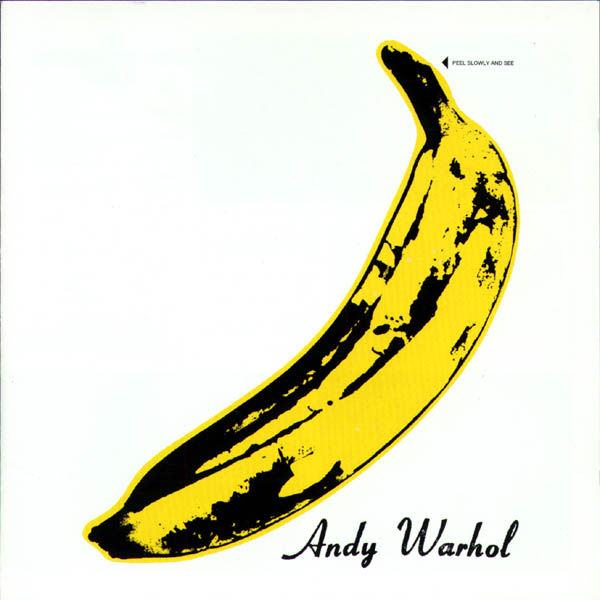
PHAWKER: Assuming that you had one, what do you remember about your first psychedelic experience?
ROBYN HITCHCOCK: You mean taking acid?
PHAWKER: I suppose so. I mean it’s not that people haven’t had psychedelic experiences without controlled substances and maybe that was the case with you…
ROBYN HITCHCOCK: I never took very much LSD. The big influence on me with acid was probably via other people, particularly all the musicians that I love and whose work I sometimes would be singing with Joe. They kind of took it all for me. I sort of went there to see what it was like, a bit like a tourist going to somewhere where there had been a great battle once, you know, or to the sight of something. Well, you know, this is where Shakespeare proposed to Anne Hathaway or this is where, you know, they signed the Treaty of Versailles or whatever it was. So no, I mean, I don’t really know. I’m not sure I really had a psychedelic experience through drugs. I took mescaline once or twice. I liked it, but I mean it was one of those things that you had to do back in those days, but I’m not really sure what use it was.
PHAWKER: I hear you.
ROBYN HITCHCOCK: You know, if you have certain perceptions whilst your perceptions are distorted, and then the distorting thing wears off, you’re back where you were but slightly confused because for a while you’ve perceived things differently. Whereas if you just take something for kicks, you know, when you’ve had a kick and then you’ve got a hangover. But, you know, if you drink a bottle of wine or you snort cocaine or whatever it is you do – I mean it’s illegal to smoke cigarettes now – but, you know, if you were to have a cigarette or, I don’t know, all those things are things that will give you some kind of a buzz for a while and leave you feeling a bit worse, but they’ll give you a buzz at the time. Whereas with psychedelics the idea was that you would gain something from having altered perceptions. But, you know, we all had to try it. Our parents had the war, we had drugs and our kids had irony. That’s how it’s gone, really.
Chinese White Bicycles (featuring Joe Boyd & Robyn Hitchcock) tonight at the World Cafe Live
